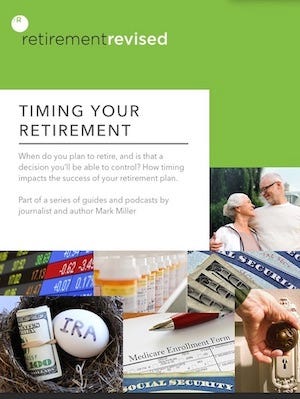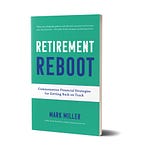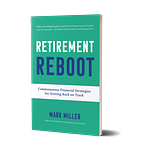
For this week’s podcast, I called up financial planner and author Allan Roth to ask one simple question: “What the hell is going on with the stock market?”
I’ve long believed that it is folly to forecast the market’s direction, and this podcast serves as a nice reminder of why I’m right about that! When I first invited Allan to talk about the market earlier this week, the backdrop was the gravity-defying rally of the last couple months. The day after we talked, the S&P 500 racked up its worst day since March, falling nearly 6 percent. I’m writing this on Friday morning; how will the market do today? I haven’t got a clue.
The rally since March made no sense to me in the first place. Jeff Sommer summarized this sentiment nicely in a column for The New York Times last weekend:
Towns and cities across the United States have been convulsed in protest against police killings of black people. The president has declared that he is prepared to deploy the United States military to “dominate” the streets — while his secretary of defense says he opposes using military force against American civilians.
Teetering on a constitutional precipice, the country faces catastrophic unemployment, grave trade tensions and a deep recession. And no one needs reminding that the world has been stricken by a coronavirus pandemic that has already killed more than 380,000 people, more than 106,000 of them in the United States.
You may want to place these items in a different order, add some or subtract others. But it would seem that at least we can all agree that we are looking at an ugly picture.
Yet there is a glaring exception to all this gloom: the stock market. It has been absolutely fabulous! In fact, by some measures, the American market has never been better.
On Thursday, the stock market seemed to be facing reality after a fresh Federal Reserve projection that the economy faces a long, multi-year slog back to health, and that much uncertainty remains. But we might recover from the drop quickly. Or not.
Allan Roth joined me for a podcast back in March to talk about how average retirement investors should think about market volatility. He was back on my radar screen this week following an excellent column for Adviser Perspectives titled The Question Every Advisor Must Answer. This piece runs through the panicky questions and assertions many financial planners are fielding from clients these days:
An economic depression is possible, if not likely.
There will be at least a 50% market decline.
The chance of a rally, much less getting anything close to historical stock returns, is near zero.
A state-issued general obligation (GO) muni bond held to maturity is safe – no defaults since 1932 – and yields 5% on a taxable equivalent basis.
Take everything out of stocks for at least six months or until after a big correction.
In our conversation, Allan and I considered those questions and more. Listen to the podcast by clicking the player icon at the top of this page. The podcast also can be found on Apple Podcasts, Spotify and Stitcher.
RetirementRevised.com guide: Timing your Retirement

Speaking of working longer - if you’re a subscriber, check out my recent guide on Timing your Retirement. This guide gets into the details on how timing impacts your retirement security. You can find it on the newsletter guide page for paid subscribers.
If you haven’t subscribed yet, give it a try - $60 annually or $5 per month, no obligation and feel free to cancel at any time. You’ll have access to all of my newsletter content and podcasts, plus all of the retirement guides, including:
Claiming Social Security
Transitioning to Medicare
Selecting Medicare plans
Aging in Place
Managing the cost of health care in retirement
How to hire a financial advisor
Click the little green button below to subscribe, or here to learn more about the newsletter and podcast.
These economists want to lock down everyone over age 65
Here’s a truly outrageous plan for getting the economy back up and running: simply force everyone over age 65 into lock down.
That’s one of the ideas floated in a frightening research paper by three economists from the Massachusetts Institute of Technology. Their argument: since older people are at greater risk of serious illness and death, let’s just force them all to stay home and let everyone else get back to work. Here’s how they summarize it in an article for Time magazine:
As is well documented, the mortality risk from COVID-19 is highly correlated to age. Because those over 65 years of age have around 60 times the mortality rate of those ages 20 to 49, lock downs on the elderly as a protective measure can be very effective in reducing deaths. They also have lower economic costs than lock downs for younger adults, as only around 20% of those over 65 are still working.
The choice between protecting lives and economic recovery is complex and difficult–not least because politicians and the public alike disagree on the trade-off between excess deaths from the pandemic and the economic damages. But our study shows, no matter what the priorities are, targeted policies bring both public-health and economic benefits.
Ok, first of all - comorbidity risk is not high only for the elderly. It is very high for people who are obese, have diabetes or asthma, for example. Do we place all of them in a mandatory lock down, too?
Just to be clear - I think older people should be isolating themselves to protect against risk. That only makes sense, on a voluntary basis. But a mandatory, discriminatory policy based on age does not.
The article doesn’t explore the implications of such a policy from an age discrimination standpoint - that is, what about older workers who are still on the job? This probably is because their paper they classify everyone over age 65 as “old.” (They didn’t have the nerve to use that description in the Time article - only in their research paper, which is here).
This study underscores why it is so important to rely on guidance on COVID19 from real experts - who just happen to be epidemiologists. Not economists.
Speaking of epidemiologists . . .

The New York Times asked more than 500 epidemiologists when they personally expect to resume 20 activities of daily life, assuming that the pandemic and the public health response to it unfold as they expect. The results offer a telling snapshot of what the real experts on the pandemic expect, from a “vote with your feet” perspective. This is well worth a glance - the charts alone are worth a thousand words.
The upshot: for most of them, resumption of daily activities is anywhere from three months away to more than a year.
Recommended reading this week
The latest on prescription drug reform proposals from the presidential campaigns and Congress . . . 30 companies that hire for part-time, remote work-from-home jobs . . . Policy ideas for strengthening the Medicare Hospital Insurance trust fund . . .Nearly half of workers expect to withdraw savings because of the COVID-19 crisis.










